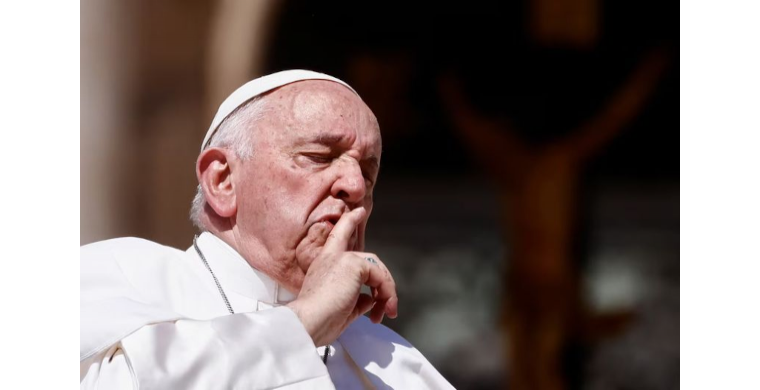PAPAL INFALLIBILITY AND THE UNIVERSAL CHURCH
By Chuck Collins
www.virtueonline.org
July 19, 2024
The dogma of “papal infallibility" was officially adopted July 18, 1870 at the First Vatican Council. This asserts that popes, when they speak with the authority of their office (ex cathedra, the chair of authority) are incapable of error by virtue of their unique position as successors of St. Peter.
When the bishops gathered for their Council that day, there was chatter about this new idea but everyone was confused about what would be voted on. Some bishops boycotted the meeting because of it. One Catholic historian writing under the name “Janus" compiled a list of times in history when popes had erred in their judgments, including a time when an ecumenical church council declared a pope heretical and anathematized him, and other times when popes contradicted their predecessors and overturned their decisions.
There was tremendous pressure especially by the Jesuits who controlled Rome at the time to agree to this teaching that no precedence in church history, even though Catholics today are told that the idea goes back to the medieval church and even to antiquity. Arguments for "the primacy of Peter" were not initially directed to doctrinal truth, but rather as an attempt to strengthen the church's power. On this day in 1870 the council overwhelmingly adopted this statement:
“The Roman Pontiff, when he speaks ex cathedra, that is, when in discharge of the office of pastor and teacher of all Christians, by virtue of his supreme apostolic authority he defines a doctrine regarding faith or morals to be held by the universal Church is possessed of that infallibility with which the divine Redeemer willed that his church should be endowed” (Pastor aeternus).
Many Catholics then and today reject the doctrine of papal infallibility and the extraordinary power delegated to one man, the "Vicar of Christ," to speak for God to the world. But this church dogma is invoked hundreds of times, and many more times by the current Pope Francis than his predecessors. For example, every time the pope canonizes a saint he said, “We declare and define infallible that Blessed John Henry Newman is a saint” (October 13, 2019).
Protestants, on the other hand, are clear that we have one mediator between God and his people, the man Christ Jesus (1 Timothy 2:5), and that God speaks decisively, clearly, and uniquely in his inspired written Word, the Bible. As Paul teaches in 1 Corinthians 12, Protestants differentiate ministries in the church in terms of function and not status.
The Archbishop of Canterbury, for example, is first among equals of the bishops of the Anglican Communion, and his word is only as good as he upholds the Bible, the only infallibly inspired Word from God. When Canterbury the catholic faith, as he has in recent years, he excuses himself from the Anglican Communion and renders his leadership irrelevant. Anglicans specifically deny papal infallibility in Article 19 (Thirty-nine Articles of Religion) when we state that the Church of Rome has erred, “not only in their living and manner of Ceremonies, but also in matters of Faith.”
Catholicity was of paramount importance for the 16th century Protestant reformers, and from their perspective it was possible to be more “catholic” in the sense of the Apostles’ Creed (“We believe in One, Holy, Catholic and Apostolic church…”) than was the Roman Catholic Church of their day. John Jewel, for example, famously challenged Romanists to prove their catholicity by evidence of Holy Scripture, the first four general councils of the ancient church, and the teaching of the church fathers.
“We do believe that ther is onely one Churche of God, and that the same is not shut up as in time past among the Jewes into any one corner or kingdome, butte it Catholike and universall, and dispersed into all the world” (The Apology of the Church of England, 1564).
Dean Chuck Collins is a Reformed theologian














